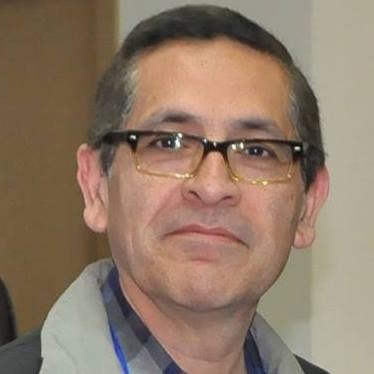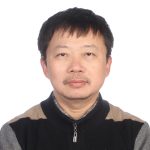Prof. Oscar Castillo
Title: Optimization of Type-2 Fuzzy Systems and Perspectives for Type-3: Theory and Applications

Abstract
Type-2 fuzzy systems are powerful intelligent models based on the theory of fuzzy sets, originally proposed by Prof. Zadeh. Most real-world applications up to now are based on type-1 fuzzy systems, which are built based on the original (type-1) fuzzy sets that extend the concept of classical sets. Type-2 fuzzy sets extend type-1 fuzzy sets by allowing the membership to be fuzzy, in this way allowing a higher level of uncertainty management. Even with the current successful applications of type-1 fuzzy systems, now several papers have shown that type-2 is able to outperform type-1 in control, pattern recognition, manufacturing and other areas. The key challenge in dealing with type-2 fuzzy models is that their design has a higher level of complexity, and in this regard the use of bio-inspired optimization techniques is of great help in finding the optimal structure and parameters of the type-2 fuzzy systems for particular applications, like in control, robotics, manufacturing and others. Methodologies for designing type-2 fuzzy systems using bio-inspired optimization in different areas of application are presented as illustration. In particular, we will cover Bee Colony Optimization, Particle Swarm Optimization, Gravitational Search and similar approaches to the optimization of fuzzy systems in control applications, robotics and pattern recognition. Finally, the prospects for the future trends and applications of type-3 fuzzy logic will be discussed.
Biography
Oscar Castillo holds the Doctor in Science degree (Doctor Habilitatus) in Computer Science from the Polish Academy of Sciences (with the Dissertation “Soft Computing and Fractal Theory for Intelligent and Manufacturing”). He is a Professor of Computer Science in the Graduate Division, Tijuana Institute of Technology, Tijuana, Mexico. In addition, he is serving as Research Director of Computer Science and head of the research group on Hybrid Fuzzy Intelligent Systems. Currently, he is President of HAFSA (Hispanic American Fuzzy Systems Association) and Past President of IFSA (International Fuzzy Systems Association). Prof. Castillo is also Chair of the Mexican Chapter of the Computational Intelligence Society (IEEE). He also belongs to the Technical Committee on Fuzzy Systems of IEEE and to the Task Force on “Extensions to Type-1 Fuzzy Systems”. He is also a member of NAFIPS, IFSA and IEEE. He belongs to the Mexican Research System (SNI Level 3). His research interests are in Type-2 Fuzzy Logic, Fuzzy Control, Neuro-Fuzzy and Genetic-Fuzzy hybrid approaches. He has published over 300 journal papers, 10 authored books, 50 edited books, 300 papers in conference proceedings, and more than 300 chapters in edited books, in total more than 1060 publications (according to Scopus) with h index of 87 and more than 25000 citations according to Google Scholar. He has been Guest Editor of several successful Special Issues in the past, like in the following journals: Applied Soft Computing, Intelligent Systems, Information Sciences, Soft Computing, Non-Linear Studies, Fuzzy Sets and Systems, JAMRIS and Engineering Letters. He is currently Associate Editor of the Information Sciences Journal, Journal of Engineering Applications on Artificial Intelligence, International Journal of Fuzzy Systems, Journal of Complex Intelligent Systems, Granular Computing Journal and Intelligent Systems Journal (Wiley). He was Associate Editor of Journal of Applied Soft Computing and IEEE Transactions on Fuzzy Systems. He has been elected IFSA Fellow in 2015 and MICAI Fellow in 2016. Finally, he recently received the Recognition as Highly Cited Researcher in 2017 and 2018 by Clarivate Analytics and Web of Science.
WEB OF SCIENCE RESEARCHER ID: https://publons.com/researcher/1331983/oscar-castillo/
SCOPUS AUTHOR ID: 7007101709: http://www.scopus.com/authid/detail.url?authorId=7007101709
Oscar Castillo DBLP: https://dblp.uni-trier.de/pers/hd/c/Castillo_0001:Oscar
ORCID: https://orcid.org/0000-0002-7385-5689
SCHOLAR google: http://scholar.google.com.mx/citations?user=1C8gb8IAAAAJ&hl=en&oi=ao
ResearchGate: http://www.researchgate.net/profile/Oscar_Castillo2/publications
Prof. Nilanjan Dey
Title: Knowledge-based XAI on Small data

Abstract
Supervised machine learning models are data-hungry, and their performance relies heavily on the size of training data available. Obtaining medical data is often challenging because of privacy issues and if the disease is rare. Small data requires models that have low complexity (or high bias) to avoid overfitting the model to the data. In reality, most of the models are complex in nature, which requires a large data pool. In this talk, I will highlight basic and advanced techniques for learning from small data.
Biography
Nilanjan Dey is an Associate Professor in the Department of Computer Science and Engineering, JIS University, Kolkata, India. He is a visiting fellow of the University of Reading, UK. He also holds the position of Adjunct Professor at Ton Duc Thang University, Ho Chi Minh City, Vietnam. Previously, he held an honorary position of Visiting Scientist at Global Biomedical Technologies Inc., CA, USA (2012–2015). He was awarded his Ph.D. from Jadavpur University in 2015. He is the Editor-in-Chief of the International Journal of Ambient Computing and Intelligence (IGI Global). Furthermore, he is the Series Co-Editor of Springer Tracts in Nature-Inspired Computing (Springer Nature), Data-Intensive Research Series(Springer Nature), and Co-Editor of Advances in Ubiquitous Sensing Applications for Healthcare (Elsevier). Additionally, he is an associate editor of IET Image Processing and an editorial board member of Complex & Intelligent Systems, Springer, Applied Soft Computing, Elsevier. He is the Indian Ambassador of the International Federation for Information Processing—Young ICT Group and a Senior member of IEEE.
Prof. Peter Rossmanith
Title: Transformations between Probability Distributions

Abstract
Generating random numbers with certain probability distributions is an important topic in computer science because it is needed in the design of randomized algorithms. Usually we want to generate some fixed distributed as for example a uniform distribution. This topic is well investigated. In this talk we will ask the more general question whether we can transform one probability distribution into another by a given transformation. A simple example is whether it is possible to simulate a coin with half the probability of heads as a given coin (yes, that is possible). Is it also possible to simulate where the probability is doubled? This question and similar ones will be the topic of this talk. Applications of such transformations are reducibility between average-case problem classes.
Biography
Peter Rossmanith is a professor of Theoretical Computer Science at RWTH Aachen University in Germany. He is mainly interested in Efficient Algorithms, but also likes to look at all other aspects in Computer Science and Mathematics including Computer Science Education. He is the author of more than one hundred scientific publications, has been on the program committee of numerous conference, and is associate editor of Computer Science Review. He is a board member of the German Computer Science Faculty Association and chairman of the committee that designs the tasks for the Federal Computer Science Competition in Germany.
Prof. Dong Xiang
Title: High-Radix Interconnection Networks

Abstract
The talk includes dragonfly-related networks for high-performance computers and data centers.
Biography
Dong Xiang received the BS and MS degrees in computer science from Chongqing University, in 1987 and 1990, respectively, and the PhD degree in computer engineering from the Institute of Computing Technology, Chinese Academy of Sciences, in 1993. He visited Concordia University, Montreal, Canada, as a postdoctoral researcher from 1994 to 1995 and the University of Illinois, Urbana Champaign from 1995 to 1996. He also visited Nara Institute of Science and Technology as a JSPS invitation fellow from Apr. to Sept., 2003. He is with the School of Software, Tsinghua University as a Professor. His research interests include design and test of digital systems, including design for testability, testing, test pattern generation, testability analysis, and built-in self-test; fault-tolerant computing, distributed/parallel computing, interconnection networks, and networks-on-chip.